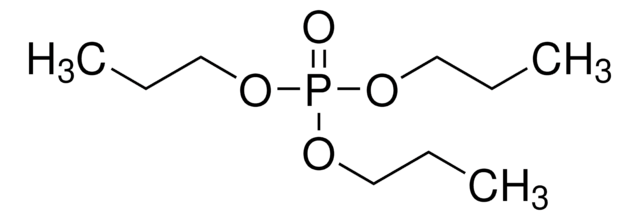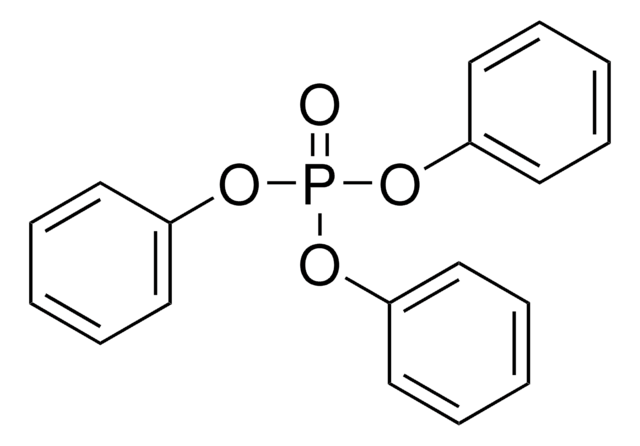Y0000279
Tri-n-butyl phosphate
European Pharmacopoeia (EP) Reference Standard
Synonym(s):
Tributyl phosphate, TBP, TBPA
About This Item
Recommended Products
grade
pharmaceutical primary standard
vapor density
9.2 (vs air)
vapor pressure
27 mmHg ( 178 °C)
7.3 mmHg ( 150 °C)
API family
tributyl phosphate
autoignition temp.
770 °F
manufacturer/tradename
EDQM
refractive index
n20/D 1.424 (lit.)
bp
180-183 °C/22 mmHg (lit.)
mp
−79 °C (lit.)
density
0.979 g/mL at 25 °C (lit.)
application(s)
cleaning products
cosmetics
food and beverages
personal care
pharmaceutical (small molecule)
format
neat
storage temp.
2-8°C
SMILES string
CCCCOP(=O)(OCCCC)OCCCC
InChI
1S/C12H27O4P/c1-4-7-10-14-17(13,15-11-8-5-2)16-12-9-6-3/h4-12H2,1-3H3
InChI key
STCOOQWBFONSKY-UHFFFAOYSA-N
Looking for similar products? Visit Product Comparison Guide
General description
Application
Packaging
Other Notes
Signal Word
Warning
Hazard Statements
Precautionary Statements
Hazard Classifications
Acute Tox. 4 Oral - Aquatic Chronic 3 - Carc. 2 - Skin Irrit. 2
Storage Class Code
10 - Combustible liquids
WGK
WGK 2
Flash Point(F)
293.0 °F - closed cup
Flash Point(C)
145 °C - closed cup
Choose from one of the most recent versions:
Certificates of Analysis (COA)
Sorry, we don't have COAs for this product available online at this time.
If you need assistance, please contact Customer Support.
Already Own This Product?
Find documentation for the products that you have recently purchased in the Document Library.
Customers Also Viewed
Our team of scientists has experience in all areas of research including Life Science, Material Science, Chemical Synthesis, Chromatography, Analytical and many others.
Contact Technical Service












